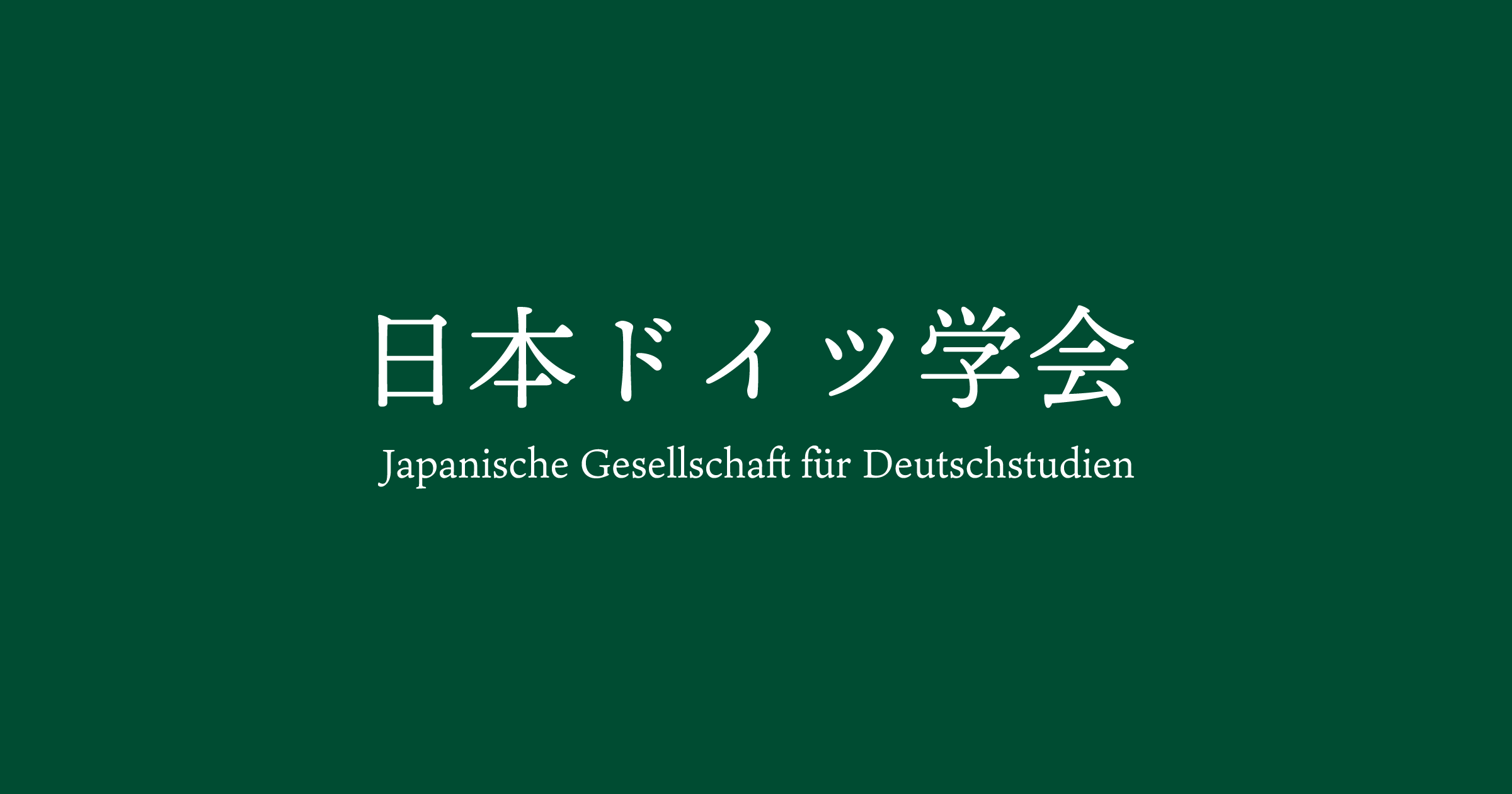第28回 日本ドイツ学会大会
開催概要
- 開催日:2012年7月7日(土)
- 会 場:東京大学大学院数理科学研究科 大講義室(駒場キャンパス)
シンポジウム
ドイツ・脱原発の選択
- 開催時刻:10時20分-17時30分
- 司会:村山聡(香川大学アーツ・サイエンス研究院教授)・藤原辰史(東京大学農学生命科学研究科講師)
1.ドイツにおける核廃棄物問題 佐藤温子(リューネブルク大学民主主義研究センター博士候補生)
福島原子力発電所第1号機の事故は、ドイツ連邦政府を2022年まで全原発閉鎖する方針へと進めさせた。一方で、今後の原子力利用の是非とは別に、従来の原子力利用の際に生じた高レベル核廃棄物の最終処分場は同国でも決定していない。本研究では、原子力利用と特に高レベル核廃棄物処分をめぐる対立に着目し、言説、反原発運動、政党の役割を複合的に分析する。
2.ドイツ環境政策の複雑さを理解する ― 環境政策史的アプローチによる問題提起 喜多川進(山梨大学生命環境学部地域社会システム学科講師)
現在のドイツは、その気候変動防止政策、再生可能エネルギー政策、廃棄物減量化政策などにより、「環境先進国」と評されることが多い。しかし、1980年代前半までのドイツは、「環境先進国」ではなかった。本報告では、1980年以降のドイツの環境政策の展開を踏まえて、ドイツにおける環境政策の推進要因を検討するとともに、日本への政策的教訓を導出する。
討論
3.基調講演 〈核〉危機と政策転換 ― 福島後のドイツと日本
(Nuclear Crisis and Policy Change: Germany and Japan after Fukushima)
Miranda A. Schreurs(ミランダ・A. シュラーズ ベルリン自由大学教授・環境政策研究センター所長)
Germany is in the midst of an energy revolution. Nuclear, coal, oil and gas are to be replaced through large-scale energy efficiency improvements and the development of renewable electricity. This transition is not without its pain, costs or difficulties, but is in the long run expected to bring new jobs and industries and make Germany a leader in the green energy field. In the early 1990s, Germany had only about 3 percent of its electricity from renewables. By 2012, this figure had climbed to about 20 percent. What changed is that as early efforts at promoting renewables paid off, an increasingly powerful community of actors supportive of more sustainable energy structures formed. By the time the Energy and Climate Package of 2010 was formulated by the conservative government of Angela Merkel, basically a cross-party consensus had formed on the importance of tackling climate change and promoting renewable energy development. Germany has basically set out to break both its dependence on traditional fossil fuels and nuclear energy through the promotion of renewable energies and energy efficiency. By 2020, the plan is to reduce greenhouse gas emissions by 40% of 1990 levels (as of 2011, emissions were 27% below) and 80-95% by 2050. This is to be done through sharp improvements in energy efficiency and a strong expansion in renewable energies (80% of electricity is to be from renewables by 2050 and 35-40% by 2020). These figures are to be achieved while simultaneously phasing out dependence on nuclear energy. Essentially by being a pioneer among manufacturing economies in promoting new renewables, Germany is setting out to establish an energy system that will be both low carbon and resource sustainable. To the extent this model spreads to other regions of Europe as well as Japan, it has the potential to be a powerful motor of change towards sustainability.
ミランダ・A. シュラーズ氏の講演は日本語でおこなわれました。
4.脱原子力の運動と政治 ― 日独比較の観点から 本田宏(北海学園大学法学部政治学科教授)
本報告では、1950年代から2011年までの期間における原子力をめぐる反原発・反核運動と政党、及び労働組合の関係について、日本とドイツを比較する。政党や労組に注目するのは、原子力を推進する国家機関や産業界と、反原発運動を含む市民社会とのつなぎ目に位置するからである。日本では運動の政治的機会が労働界や政界の再編によって縮小する一方、ドイツでは運動が政界再編を促した構図を明らかにしたい。
5.ドイツにおける原子力施設反対運動の担い手たち ― 人々はなぜ運動に身を投じてきたのか? 青木聡子(名古屋大学環境学研究科専任講師)
本報告では、ヴィール、ヴァッカースドルフ、ゴアレーベンという代表的な3事例を取り上げ、ドイツの原子力施設反対運動が多くの参加者を惹きつけてきた要因を考える。具体的には、運動の担い手や参加者たちの運動観に着目し、立地点周辺において「われわれの故郷」を守るための住民運動として展開されてきたドイツの原子力施設反対運動のありようを示し、ポスト脱原発および日本への示唆を考える手がかりとしたい。
6.『イエロー・ケーキ ~ クリーンなエネルギーという嘘』 抜粋上映 2005-2010 監督:ヨアヒム・チルナー
7.Beispiele zum Energieautarken Wohnbau in Japan Oskar Bartenstein (O.バルテンシュタイン IFCJ株エコライフラボ)
Der Kurzvortrag stellt mit konkreten Projekten Motivation und Technik energieautarken Bauens in Japan vor. Angesprochen werden dabei auch ein paar harte wirtschaftliche und gesetzliche Unterschiede zu Deutschland – wichtige Randbedingungen, die vielmals als “kulturell bedingt” missverstanden werden.
オスカー・バルテンシュタイン氏の講演は日本語でおこなわれました。

